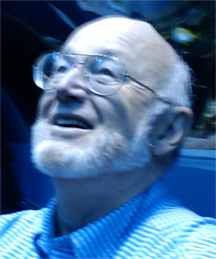** LATEST NEWS **
Alex Wolf's and my seminal software architecture paper, "
Foundations for the Study of Software Architecture",
written during the summer of 1989 and published in 1992, has been the most cited software engineering paper since at least 1999.
At ESEC/FSE the paper received the
ACM SigSoft Retrospective Impact Award.
A little known fact about the paper: it was first presented here in Austin at MCC in August 1989.
** Words of Wisdom **
Benno Schmidt on Free Speech
From "Universities Must Defend Free Speech" in the May 6, 1991,
Wall Street Journal, adapted from remarks by Benno C. Schmidt Jr., who was at the
time president of Yale University:
The most serious problems of freedom of expression in the U.S. today
exist on our campuses. Freedom of thought is in danger from
well-intentioned but misguided efforts to give values of community and
harmony a higher place than freedom. The assumption seems to be that
the purpose of education is to induce "correct" opinion rather than to
search for wisdom and to liberate the mind.
On many campuses, perhaps most, there is little resistance to growing
pressure to suppress and to punish, rather than to answer, speech that
offends notions of civility and community. These campuses are heedless
of the oldest lesson in the history of freedom, which is that
offensive, erroneous and obnoxious speech is the price of
liberty. Values of civility, mutual respect and harmony are rightly
prized within the university. But these values must be fostered by
teaching and by example, and defended by expression. When the goals
of harmony collide with freedom of expression, freedom must be the
paramount obligation of an academic community.
Much expression that is free may deserve our contempt. We may well be
moved to exercise our own freedom to counter it or to ignore it. But
universities cannot censor or suppress speech, no matter how obnoxious
in content, without violating their justification for
existence. Liberal education presupposes that a liberated mind will
strive for the courage and composure to face ideas that are fraught
with evil, and to answer them. To stifle expression because it is
obnoxious, erroneous, embarrassing, not instrumental to some political
or ideological end is-quite apart from the invasion of the rights of
others-a disastrous reflection on the idea of the university. It is
to elevate fear over the capacity for a liberated and humane mind ....
A more vexing question of freedom of expression concerns the actual
use of university authority to suppress freedom. This is the most
serious example of confusion and failure of principle in university
governance today. It reminds us how frequently in history threats to
free expression have come not from tyranny but from wellmeaning
persons of little understanding.
Adam Smith, "The Theory of Moral Sentiments" (1759):
The prudent man always studies seriously and earnestly to
understand whatever he professes to understand, and not merely to
persuade other people that he understands it; and though his talents
may not always be very , brilliant, they are always perfectly
genuine. He neither endeavours to impose upon you by the cunning
devices of an artful impostor, nor by the arrogant airs of an assuming
pedant, nor by the confident assertions of a superficial and impudent
pretender. He is not ostentatious even of the abilities which he
really possesses. His conversation is simple and modest, and he is
averse to all the quackish arts by which other people so frequently
thrust themselves into public notice and reputation. For reputation in
his profession he is naturally disposed to rely a good deal upon the
solidity of his knowledge and abilities; and he does not always think
of cultivating the favour of those little clubs and cabals, who, in
the superior arts and sciences, so often erect themselves into the
supreme judges of merit; and who make it their business to celebrate
the talents and virtues of one another, and to decry whatever can come
into competition with them. If he ever connects himself with any
society of this kind, it is merely in self-defence, not with a view to
impose upon the public, but to hinder the public from being imposed
upon, to his disadvantage, by the clamours, the whispers, or the
intrigues, either of that particular society, or of some others of the
same kind.
Fleeting Moments:
A Blast from the Past -
- Another Blast from the Past
|
Dewayne E. Perry
- This information last updated September 2008
|
|
Copyright © 1999-Present .All rights reserved.
|
